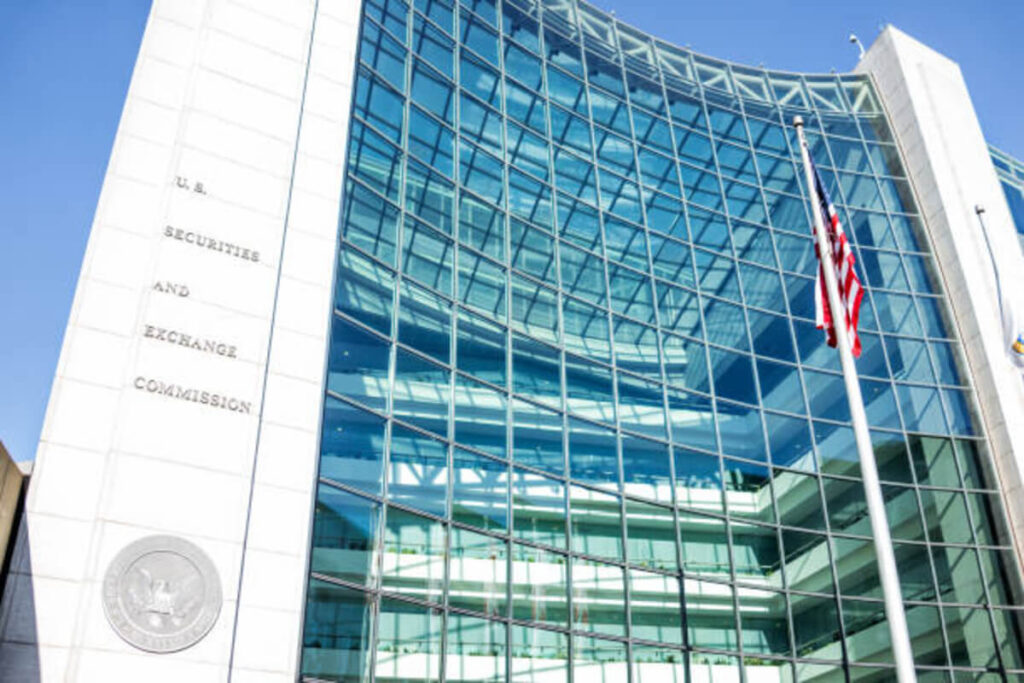The Securities and Exchange Commission (SEC) is a federal agency that is responsible for enforcing the securities laws of the United States. The SEC was created in 1934 to protect investors from fraudulent stockbrokers and to regulate the stock market.
Functions of The Securities and Exchange Commission
The SEC has five main functions:
- To enforce the securities laws of the United States.
- To investigate potential violations of the securities laws.
- To bring civil enforcement actions against violators of the securities laws.
- To administer the registration process for securities offerings.
- To educate investors about the dangers of investing in fraudulent securities.
Also, check out The Top Commercial Banks in Nigeria.
What is the SEC?
The SEC is the federal agency responsible for enforcing securities laws and regulating the securities industry. The SEC was created by the Securities Exchange Act of 1934. The SEC’s mission is to protect investors, maintain fair, orderly, and efficient markets, and facilitate capital formation.
The SEC has five Commissioners who are appointed by the President and confirmed by the Senate. The Commissioners serve staggered five-year terms. The Chairman and Vice Chairman are selected by the President from among the Commissioners.
The SEC is organized into divisions and offices that carry out its work.
- The Division of Enforcement is responsible for investigating potential violations of securities laws and bringing enforcement actions against individuals and firms that violate those laws.
- The Division of Corporation Finance oversees disclosures made by public companies, regulates corporate governance, and provides guidance on disclosure requirements.
- The Division of Trading and Markets regulates broker-dealers, transfer agents, investment advisers, and other participants in the securities marketplace.
- The Division of Investment Management regulates investment companies and investment advisers.
- And the Office of Compliance Inspections and Examinations conducts inspections of SEC-registered firms to ensure compliance with securities laws.
What Does the SEC Do?
The Securities and Exchange Commission (SEC) is a government agency that regulates the securities industry. The SEC promotes full disclosure of information that might be important to investors, maintains fair dealing in the securities markets, and protects investors against fraud.
The SEC is organized into five divisions:
- Enforcement: investigates potential violations of securities laws and brings enforcement actions
- Corporate Finance: oversees public companies’ disclosures
- Trading and Markets: regulates broker-dealers, transfer agents, and other participants in the securities markets
- Investment Management: regulates investment advisers, mutual funds, and other investment vehicles
- Economic and Risk Analysis: conducts economic research and analyses to support the SEC’s mission
How Does the SEC Work?
The Securities and Exchange Commission (SEC) is an important government agency that oversees the securities industry and protects investors. The SEC works to foster fair and orderly markets and to promote capital formation.
The SEC has four main divisions:
- the Division of Corporation Finance
- the Division of Enforcement
- the Division of Investment Management
- and the Division of Trading and Markets.
Each division has a different role in regulating the securities industry.
The Division of Corporation Finance is responsible for disclosure rules and regulations. This division reviews filings by public companies to ensure that investors have all the information they need to make informed investment decisions. The division also provides guidance to companies on disclosure requirements.
The Division of Enforcement investigates potential securities law violations and brings enforcement actions against violators. The division also works to protect investors from fraud and other illegal activity in the securities markets.
The Division of Investment Management regulates investment advisers, mutual funds, and other investment vehicles. This division ensures that these products are properly disclosed to investors and that they are operated in a manner that is consistent with investment objectives.
The Division of Trading and Markets regulates broker-dealers, exchanges, clearing agencies, and credit rating agencies. This division works to promote fair dealing in the markets and to protect investors from abusive practices such as insider trading.
Who Oversees the SEC?
The Securities and Exchange Commission (SEC) is a government agency that oversees the securities industry and exchanges in the United States. Its mission is to protect investors, maintain fair, orderly, and efficient markets, and facilitate capital formation.
The SEC is headquartered in Washington, D.C., and has five regional offices across the country.
The SEC is led by a Chair and four Commissioners who are appointed by the President of the United States with the advice and consent of the Senate.
The Chairperson leads the agency and sets its agenda, while the Commissioners are responsible for carrying out the SEC’s mission. Commissioners are nominated by the President and confirmed by the Senate for staggered five-year terms.
Also, check out High-Income Skills to Make Money in Nigeria.
SEC Investigations
The SEC investigates potential securities law violations. The process usually starts with a referral from another agency, tips, complaints from investors, or information that the SEC staff discovers.
After opening an investigation, the SEC gathers information through subpoenas, interviews, and on-site examinations. The SEC also works closely with criminal prosecutors and shares information with them when there is evidence of a possible crime.
The investigation culminates in a recommendation to the Commission to bring an enforcement action or not. If the Commission votes to bring an enforcement action, the case is referred to the Division of Enforcement for prosecution.
Enforcement Actions
The Security and Exchange Commission (SEC) is responsible for enforcing federal securities laws. The SEC has a wide range of enforcement tools at its disposal, including fines, cease-and-desist orders, and injunctions.
The SEC also has the authority to bring criminal charges against individuals or entities that violate federal securities laws. These cases are prosecuted by the Department of Justice.
The SEC’s enforcement actions are designed to protect investors, maintain fair and orderly markets, and promote compliance with federal securities laws.
Final Notes on The Securities and Exchange Commission
The SEC is a critical government agency that helps to protect investors and ensure the integrity of the markets. While it has come under fire in recent years, there is no doubt that it plays an important role in our economy. We hope this article has given you a better understanding of the SEC and its functions.
Before you go, check out All You Need to Know about Internet Banking.







